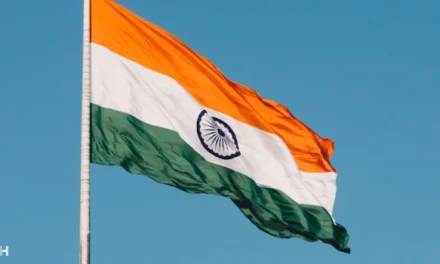The relationship between Switzerland and Israel has long been a complex and multifaceted one, shaped by Switzerland’s commitment to neutrality and humanitarian principles. Recent events, such as the allegations and criminal complaints against the Israeli President during his visit to Davos, have brought this relationship into sharper focus. This article aims to provide an in-depth analysis of Switzerland’s stance on the Israeli-Palestinian conflict and its support for Israel.
Switzerland’s Neutrality and Humanitarian Principles
Switzerland has a long-standing tradition of neutrality, which has been a cornerstone of its foreign policy for centuries. This neutrality is not merely a political stance but also a commitment to upholding humanitarian principles and promoting peace and stability in the international community.
One of the key principles guiding Switzerland’s approach is the respect for international humanitarian law. Switzerland has consistently advocated for the protection of civilians in armed conflicts and has played a crucial role in the development and implementation of international humanitarian law frameworks.
Switzerland’s Stance on the Israeli-Palestinian Conflict
Historical Context
Switzerland has been involved in the Middle East peace process for decades, often serving as a neutral mediator and facilitator of dialogue between the parties involved. The country has consistently called for a peaceful resolution to the conflict, based on international law and respect for human rights.
Recent Developments
In recent years, Switzerland has expressed deep concern over the escalating violence in Gaza and the deteriorating humanitarian situation in the region. In response to the escalation of hostilities in May 2021, Switzerland called on all parties to comply with international humanitarian law and ensure the protection of civilians.
Furthermore, Switzerland supported the International Court of Justice’s provisional measures against Israel, which aimed to prevent further violations of international law and protect the rights of Palestinians in the occupied territories.
Funding for Human Rights Organizations
In a controversial move, Switzerland announced in October 2023 that it would suspend funding for certain human rights organizations operating in Israel and Palestine. The decision was made in response to allegations that some of these organizations had ties to terrorist groups or were involved in activities that undermined the peace process.
While the decision was met with criticism from some quarters, Switzerland maintained that it was necessary to ensure that its funding was not being misused or contributing to the perpetuation of the conflict.
Diplomatic Efforts
Despite its neutral stance, Switzerland has been actively involved in diplomatic efforts to address the humanitarian crisis in Gaza and promote a peaceful resolution to the conflict. The country has supported independent investigations into alleged violations of international law and has called for unimpeded humanitarian access to the region.
Switzerland’s Relationship with Israel
Switzerland and Israel have maintained strong economic and cultural ties over the years. Switzerland is one of Israel’s major trading partners, and the two countries have collaborated on various scientific and technological projects.
However, Switzerland has also been critical of certain Israeli policies, particularly regarding the expansion of settlements in the occupied territories and the perceived violation of Palestinian rights. Switzerland has consistently advocated for a two-state solution, with a secure and independent Palestinian state coexisting peacefully alongside Israel.
Criticism and Challenges
Switzerland’s stance on the Israeli-Palestinian conflict has not been without criticism. Some have accused the country of being biased in favor of Israel, while others have criticized Switzerland for not taking a stronger stance against alleged human rights violations.
Additionally, Switzerland faces the challenge of maintaining its neutrality while upholding its humanitarian principles. Balancing these two priorities can be a delicate task, particularly in a conflict as complex and emotionally charged as the Israeli-Palestinian conflict.
Conclusion
Switzerland’s relationship with Israel and its stance on the Israeli-Palestinian conflict are nuanced and multifaceted. While the country has maintained strong economic and cultural ties with Israel, it has also been a vocal advocate for international humanitarian law and a peaceful resolution to the conflict.
Switzerland’s decision to suspend funding for certain human rights organizations has been controversial, but it reflects the country’s commitment to ensuring that its aid is not being misused or contributing to the perpetuation of the conflict.
Ultimately, Switzerland’s approach to the Israeli-Palestinian conflict is guided by its principles of neutrality and respect for international law. The country has consistently called for dialogue, diplomacy, and adherence to international humanitarian law as the path towards a lasting and just peace in the region.
As the conflict continues to evolve, Switzerland’s role as a neutral mediator and advocate for humanitarian principles will remain crucial in the pursuit of a peaceful resolution that respects the rights and aspirations of both Israelis and Palestinians.
FAQ: Does Switzerland Support Israel?
Switzerland has recognized Israel’s right to exist and has supported the two-state solution for the Israeli-Palestinian conflict. However, Switzerland condemned Hamas activities and moved to ban Hamas in 2022.
What is the stance of the Swiss government on Hamas?
The Swiss government has expressed “deep sorrow for the thousands of victims of violence” resulting from Hamas activities. It has also moved to ban Hamas and condemned its attack on October 7.
What actions did Switzerland take against Hamas in 2022?
In 2022, Switzerland announced the move to ban Hamas, citing the organization’s activities as a cause for concern. The Swiss Federal Council led the efforts to take action against Hamas.
How does Switzerland view the Middle East conflict?
Switzerland has been actively involved in initiatives promoting peace and stability in the Middle East. It has supported international cooperation and human rights in the region.
Q: What role does the Swiss Federal Department of Foreign Affairs play in relation to this issue?
The Swiss Federal Department of Foreign Affairs (FDFA) handles Switzerland’s foreign policy matters, including its relations with countries involved in the Middle East conflict like Israel and Palestine.
When did Switzerland take steps to ban Hamas?
Switzerland announced the decision to ban Hamas on October 7, indicating a significant shift in its approach towards the organization’s activities.
How does Switzerland’s stance on Hamas impact its relations with other nations in the region?
Switzerland’s move to ban Hamas could potentially affect its relations with other countries in the Middle East that have differing views on the organization. It underscores Switzerland’s commitment to peace and security in the region.





